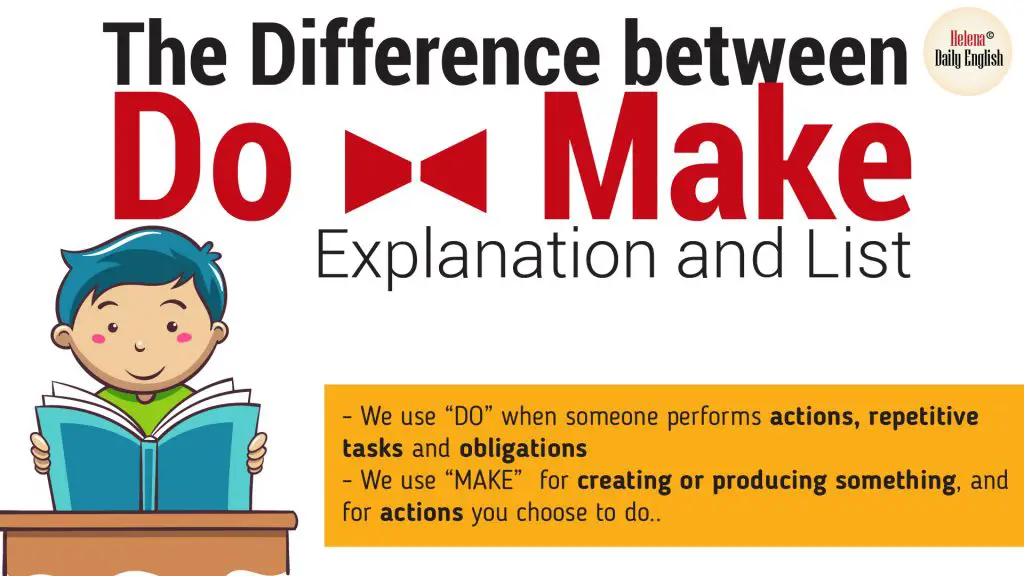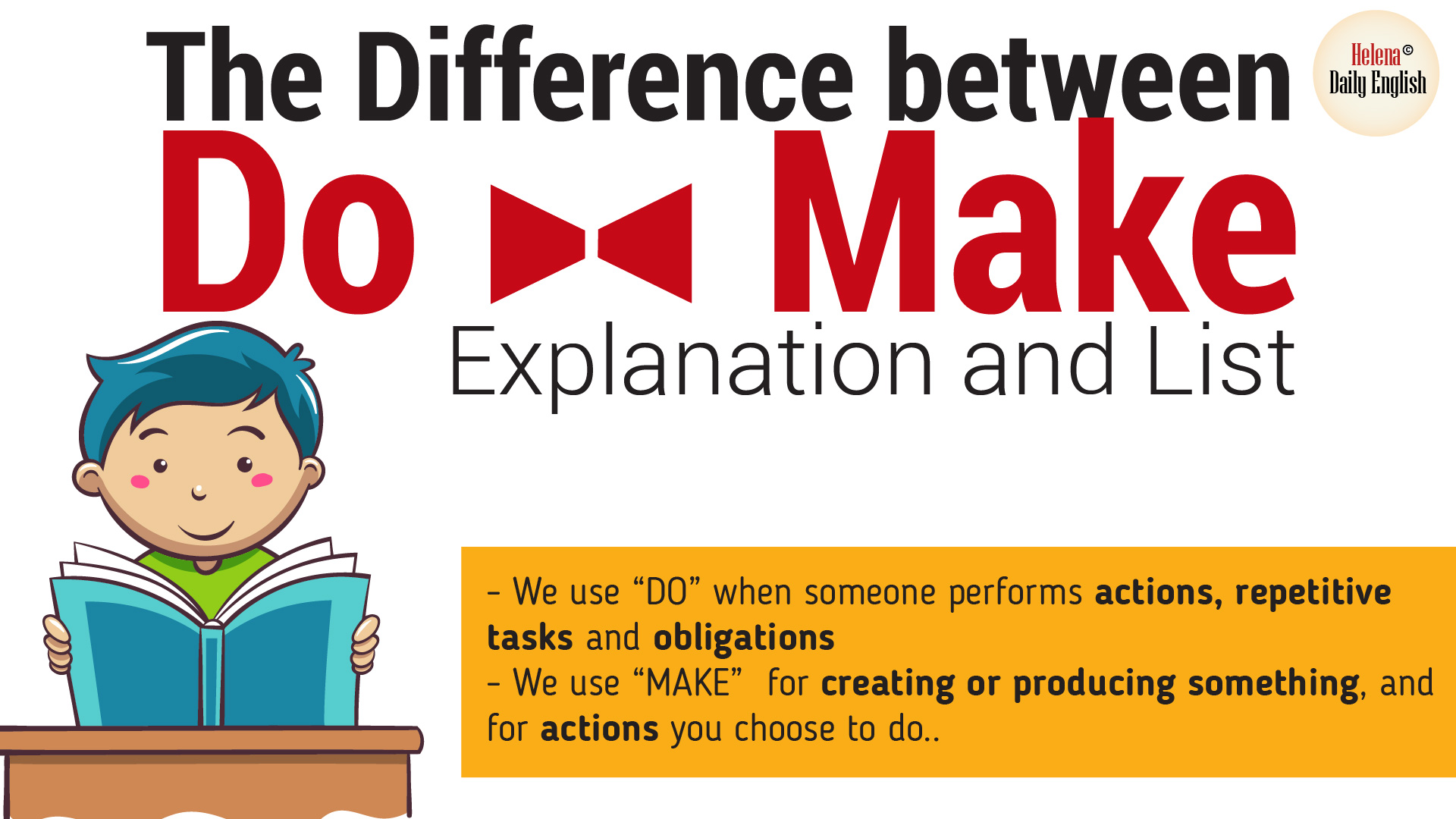The Difference between DO and
- We use “DO” when someone performs actions, repetitive tasks and obligations.
In other words, “DO” is often used when referring to work of any kind and referring to the action itself.
- We use “MAKE” for creating or producing something, and for actions you choose to do..
In other words, “MAKE” is often used when referring to the result.

When do you use DO?
DO is used as follows:
DO is used when talking about work, jobs or tasks. Note, they do not produce any physical object.
Example:
- Have you done your homework?
- I have guests visiting tonight so I should start doing the housework now.
- I wouldn’t like to do that job.
DO is used when we refer to activities in general without being specific. In these cases, we normally use words like thing, something, nothing, anything, everything etc.
Ex:
- Hurry up! I’ve got things to do!
- Don’t just stand there – do something!
- Is there anything I can do to help you?
We sometimes use DO to replace a verb when the meaning is clear or obvious. This is more common in informal spoken English:
Ex:
- Do I need to do my hair? (do = brush or comb)
- Have you done the dishes yet? (done = washed)
- I’ll do the kitchen if you do the lawns (do = clean, do = mow)
How to Speak English Fluently like American Speakers in 1 Month – Part 1,2
When do you use MAKE?
Make is for producing, constructing, creating or building something new.
It is also used to indicate the origin of a product or the materials that are used to make something.
Ex:
- His wedding ring is made of gold.
- The house was made of adobe.
- Wine is made from grapes.
- The watches were made in Switzerland
We also use Make for producing an action or reaction:
Ex:
- Onions make your eyes water.
- You make me happy.
- It’s not my fault. My brother made me do it!
You make before certain nouns about plans and decisions:
Ex:
- He has made arrangements to finish work early.
- They’re making plans for the weekend.
- You need to make a decision right now.
We use Make with nouns about speaking and certain sounds:
Ex:
- She made a nice comment about my dress.
- The baby is asleep so don’t make any noise.
- Can I use your phone to make a call?
- Don’t make a promise that you cannot keep.
We use Make with Food, Drink and Meals:
- I made a cake for her birthday.
- She made a cup of tea.
- I must go now. I have to make dinner.
Compare Do and Make
A: You have to make a cake for Simon.
B: I’ll do it later.
Notice how in the response the verb DO is used. This is because the meaning is clear and to avoid saying “I’ll make it later.” which could sound repetitive.
| DO & MAKE LIST | |
| Do | Make |
| Housework
Do the housework Do laundry Do your chores Do the washing up (UK) Do the shopping
Work/Study Do homework Do an assignment Do a report Do a test (UK) Do a project Do a course (UK)
Taking care of your body Do exercise Do gymnastics Do your makeup Do your hair Do your nails
Do non-specific activities Do a favour (UK) / Do a favor (US) Do badly Do harm Do damage Do your best Do a good job Do well
|
Housework
Make the bed Make room
Food, Drink and Meals Make a cake Make breakfast Make dinner Make a cup of tea
Communications Make a noise Make a comment Make a joke Make a point Make arrangements Make a speech Make a suggestion Make a complaint Make a confession Make a prediction
Relationships/ Reaction Make your eyes water Make you happy Make you sleep Make you smile Make friends Make love Make up
Plan/Decision Make a contract Make progress Make a choice Make a plan Make a decision Make an attempt/ effort Make up your mind
Money Make money Make a profit Make a fortune Product Material Made of gold/silver Made from oranges/lemons Made in Japan/China Made by me
Others Make believe Make sense Make changes Make sure Make trouble
|





